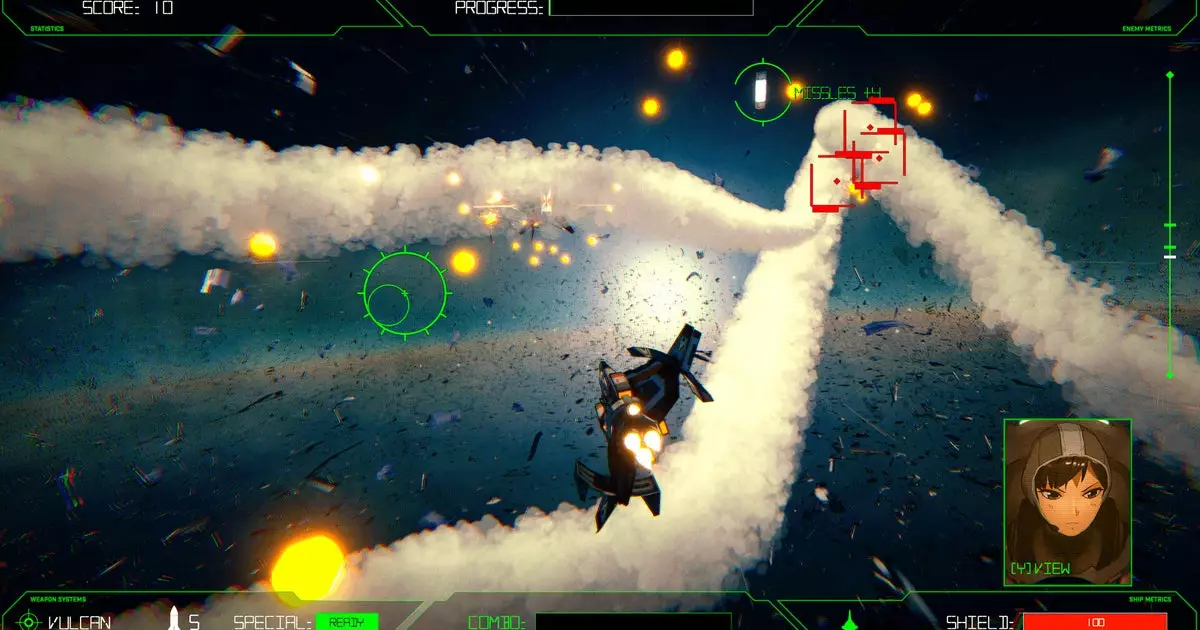Rogue Flight emerges as an intriguing addition to the arcade space combat genre, drawing clear inspiration from classics such as StarFox. This game’s forthcoming release later this year is highly anticipated, especially among fans of retro gaming aesthetics. The immersive experience promised by Rogue Flight is rooted in the nostalgic style identifiable with ’80s and ’90s anime, often celebrated for its artistic merit and storytelling accomplishments. While there’s a continuous debate on the quality of anime, it’s undeniable that this homage to a particular era encapsulates a unique charm that resonates with various audiences.
A key feature of Rogue Flight is its fluid gameplay mechanics, including acrobatic maneuvers and intense dogfighting across nine meticulously crafted stages. Players will not only engage in frenetic enemy encounters but will also navigate a branching narrative path, promoting an engaging storytelling experience. The inclusion of an unlockable roguelite mode, promising elements like permadeath, adds a layer of intensity that challenges players to strategize effectively. Furthermore, the option to customize spacecraft and pilots provides a personal touch, fostering attachment to one’s in-game representation and enhancing overall immersion.
The marketing narrative surrounding Rogue Flight prominently highlights its esteemed voice cast, featuring notable actors from popular anime series such as Sailor Moon and Neon Genesis Evangelion. While these voices may evoke a sense of nostalgia for avid anime watchers, the cultural nuances can be easily lost on individuals who prefer dubbed versions over subtitles. This division underscores a broader discourse about accessibility and audience engagement within the gaming community. Additionally, the English voice cast includes familiar names from gaming franchises like Fallout 76 and Overwatch, appealing to a diverse player base, yet sparking the question of how essential voice acting truly is in augmenting the gaming experience.
Beyond the engaging gameplay and voice talent, Rogue Flight promises an aesthetic that is rich in evocative themes and visual grandeur. The combination of energetic rock music and visually stimulating space combat mechanics creates an engaging experience; however, it’s the underlying emotional layer that piques a deeper interest. There’s a certain allure in games that tap into complex feelings of melancholy and existential struggle, especially when associated with mechs and spacecraft that serve as extensions of the human condition. For many, these vessels symbolize a deeper yearning for control and expression, reminiscent of how one navigates life’s challenges.
In summation, Rogue Flight stands poised to deliver a multifaceted gaming experience that blends nostalgia, emotional resonance, and dynamic gameplay. As players prepare to embark on this space odyssey, the combination of customizable elements and rich storytelling promises an adventure that transcends traditional combat games. By tapping into both playful and profound themes, Rogue Flight is shaping up to be more than just an arcade game; it’s a journey into a uniquely crafted universe that excite players while making them reflect on their own battles, both internal and external.

